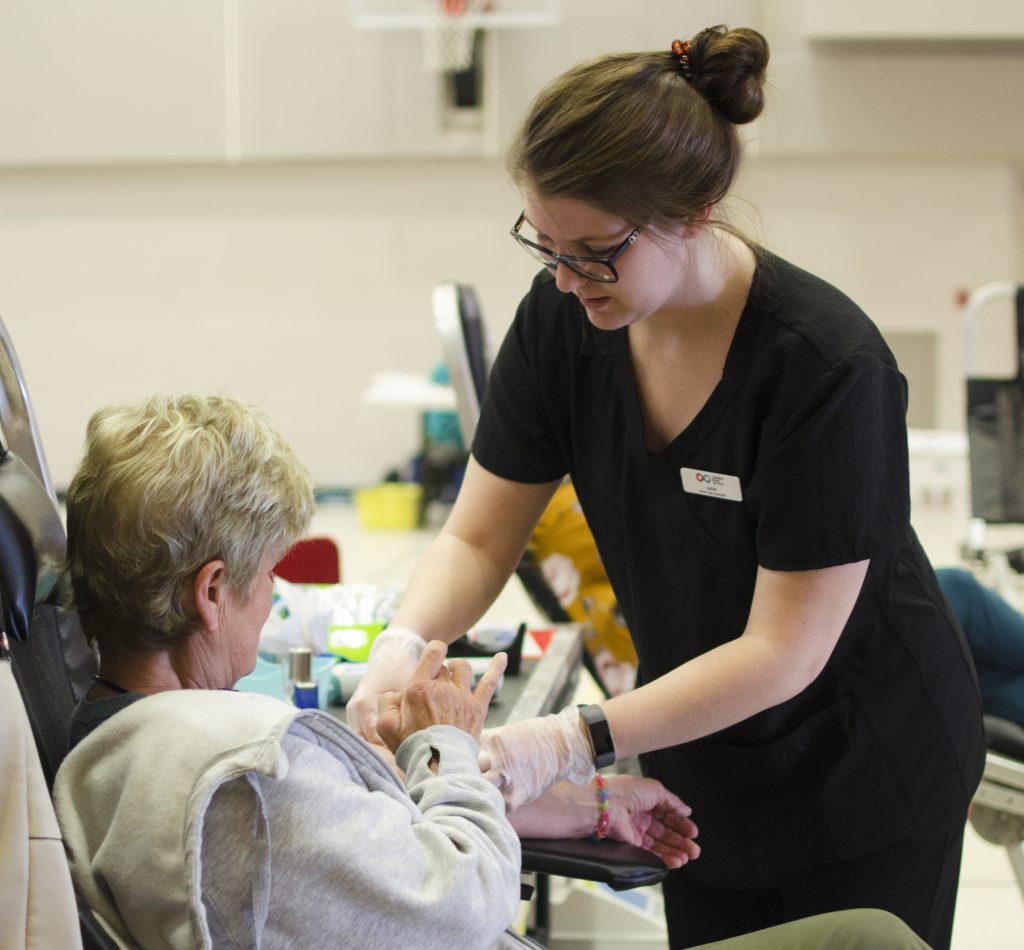Despite all the uncertainties brought on by the pandemic, one thing that remains the same is the constant need for blood donations.
Donated blood lasts no longer than 42 days, and donations are continually being used to support patients with blood disorders and other medical conditions. Canadian Blood Services has over 5,000 appointments across Canada that need to be filled each month, and with walk-ins on pause during the pandemic, booking appointments in advance is more important than ever. Donation clinics are coming up in Huntsville on April 19, Bracebridge on April 26 and Orillia on May 17.
“We are so fortunate to have the backing of our Muskoka communities throughout the pandemic, not only the donors who roll up a sleeve, but our gracious host venues who have done their absolute best to keep the doors open and ready for us so that we can maintain our clinic schedule,” said Elaine St. Pierre, Canadian Blood Services territory manager for Barrie, Muskoka, Simcoe, Dufferin and Grey.
Below, St. Pierre answers some of the most common questions Canadian Blood Services has received as the vaccine roll-out continues.
Can I donate if I received a COVID-19 vaccine?
The answer is yes you can! There is no deferral period for donors who receive a COVID-19 vaccine. There is also no suggestion or evidence in the research available that donating blood, plasma or platelets reduces the effectiveness of the COVID-19 vaccine. While it is still unknown if there might be side effects with the vaccines, such as not feeling well enough to donate, we want to remind donors if they are not feeling well on the day of their appointment, they can reschedule their donation at a later date.
Do I need to make an appointment, or can I simply show up at my local donation clinic?
When the pandemic struck, we had to make the decision to only take donors with appointments and no longer accommodate walk-ins. For anyone that donated pre-pandemic, they would attest to the fact that we always did our best not to turn anyone away, even if they didn’t have an appointment. COVID-19 has changed that. We now have reduced capacity at our events, due to COVID protocols around physical distancing, and what that ultimately means is that there are fewer appointments available per event, and every one of them needs to be filled. In Muskoka, those spots tend to get snapped up quickly. Many of our Muskoka events often are fully booked weeks in advance. So please book ahead!
Can another donor replace me if I miss my appointment?
Because we can no longer accept walk-ins, if you are lucky enough to have an appointment, it’s important that you keep it because we can’t replace you on short notice if you decide not to come. We are hoping that every donor who books a spot, keeps that commitment to ensure that our goals are met at each and every event. There’s a tendency to think that someone will fill your spot if you don’t come, but that’s no longer the case.
I want to donate blood at my local clinic. Why doesn’t the clinic show in the online booking system?
Because there aren’t any available openings at the moment – a great problem to have… Certainly worth mentioning, when one finds few (or no) available appointments, it’s important to keep checking back in case donors have to cancel.
Does the stay-at-home order affect blood donation appointments?
The order does not affect our operations. Donating blood is definitely an essential trip and I’m happy to say that we have successfully been collecting blood every single day throughout the pandemic, thanks to the generosity and commitment of donors across the country. The need for blood doesn’t stop, so neither do we!
Does my blood type matter when it comes to making a donation?
All blood types are needed and everyone who is able to is encouraged to donate.
Click here to check your eligibility, and visit the Canadian Blood Services’ website to learn more about donating blood during the COVID-19 pandemic.
